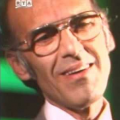A legend in Afghanistan before the Soviet invasion, Dr. Sadiq Fitrat took the name “Nashenas”, which means “unknown,” while he was director of Radio Afghanistan in Kabul. At night he used to broadcast recordings of his own songs, which went out into the night air anonymously. Nashenas was far more educated than most of the popular singers; he was from the Pashtun tribe, and had a deep interest in Indian music, particularly the influential film singer of the 1940s, K.L. Saigal. His compositions were extraordinary, and the voice was haunting.
The first time I heard Nashenas singing on tape was at a late-night party an Afghan friend took me to in Queens, New York City. I was mesmerized. Later, I learned he was controversial, and there was gossip of his being pro-Russian. When I met Nashenas for the first time in Islamabad, Pakistan, he was living in a gilded cage. The Pakistani government had given him an apartment and a stipend in return for his singing his songs for their Lok Virsa folk heritage music label. They backed him up with a symphony orchestra — a mix of eastern and western instruments. It was a bizarre and interesting experiment. Eventually, he was given asylum in England.
The concerts I organized for Nashenas in the USA were tense and tribal. He was rather a folk hero among some of his fellow Pashtuns, but remained controversial among the ethnic Tajik population as well. Nevertheless, the halls were very full, the atmosphere electric, and the security very tight. One of my editors at the time brought Susan Sontag and Salman Rushdie to the NYC performance. This was just before the fatwa on Rushdie, thankfully.

